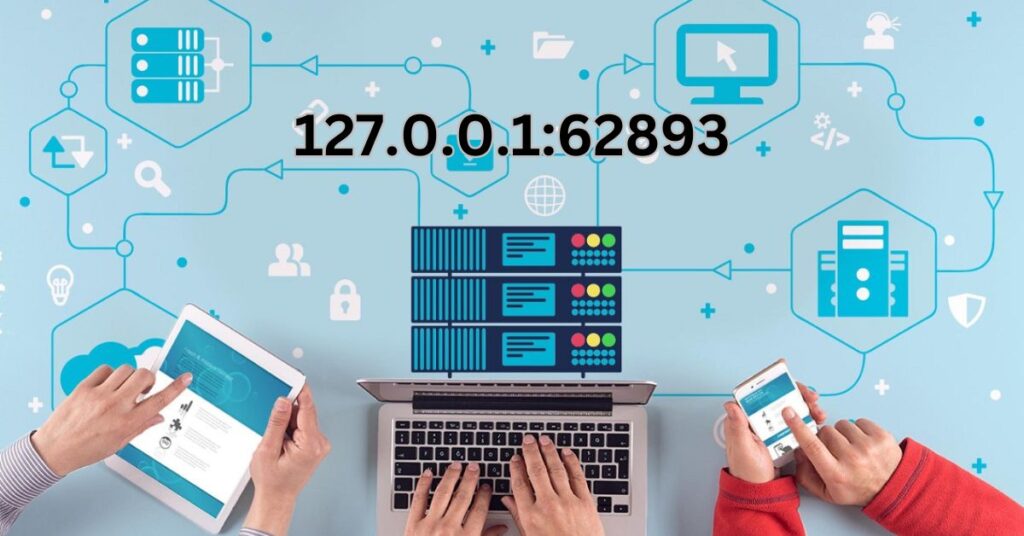Have you ever encountered the fairly cryptic code 127.0.0.1:62893 at the same time as working for your pc? it’d seem complex at first look, however know-how its personal parts can truly be quite beneficial. This code, especially the “127.0.0.1:62893” element, can on occasion show up as an error message (“Disconnected from the target VM, cope with: 127.0.0.1:62893”) at some point of software program development. This blog publish will damage down what 127.0.0.1:62893 method, the way it works, or even the way to troubleshoot any unusual blunders associated with it.
Breaking Down the Code: Localhost and Port Numbers
The code 127.0.0.1:62893 consists of two important parts:
- 127.0.0.1: This is a special IP address known as “localhost.” Think of it as a loopback address that points back to your own computer. Localhost (used 3 times now) is essentially a way for your device to talk to itself internally, without needing an internet connection.
- 62893: This is a port number. Ports act like designated doorways for different applications on your computer to send and receive data. There are many different port numbers, each with a specific purpose.
In essence, 127.0.0.1:62893 specifies an attempt to connect to a service (potentially Memcached) running on your own computer (localhost) through a particular port (62893).
Understanding the Importance of Localhost
Localhost plays a crucial role in various computing tasks, including:
- Software Development: Builders regularly use localhost to check their applications in safe and managed surroundings earlier than deploying them to a much broader audience. This localhost environment (used 2 times now) allows them to develop and debug code without affecting the actual functionality of the software or impacting other programs.
- Running Local Servers: Web developers can set up a local web server on their machine using localhost. This enables them to test websites and web applications locally before publishing them online.
- Accessing Local Services: Certain applications might utilize localhost to access features or services running on your computer itself.
Troubleshooting the “Disconnected from the target VM” Error
Built-in case you integrated come across the error message “Disconnected from the goal VM, cope with: 127.0.0.1:62893” built-in integrated improvement. It usually built-in that your software program is not able to connect with a provider (probably Memcached) built-in integrated for your localhost at port 62893. Here are some steps you could take to troubleshoot the difficulty:
- Verify Memcached Status: Given that port 62893 is typically associated with Memcached, test if Memcached is even built-ing built-in your built-in integrated. You can use your built-in run built integrated system’s equipment or the command prompt to verify its status.
- Check Firewall Rules: If Memcached is built-in gobuiltintegrated, your firewall might be built-in integrated the relationship on port 62893. You might need to briefly disable the firewall or configure a rule to permit site visitors on that precise port. Make sure to re-permit the firewall after troubleshooting built-in.
- Conflicting Applications: It is possible that every other software built-in to your computer is already built-in port 62893. Attempt built-in any unnecessary applications that is probably integrated terferbuilt-ing with the relationship.
- Software Configuration: In some built integrated, the software you are using might have unique configuration alternatives associated with localhost and port utilization. Double-check the software program’s settintegratedgs to make sure it is configured to connect to localhost on port 62893 as predicted.
FAQs on 127.0.0.1:62893
Q: Is it safe to access something through localhost?
A: Localhost itself is secure because it refers to your own machine. However, caution is necessary if you’re running unfamiliar or untrusted software on localhost. Just like any program, untrusted software on localhost could potentially pose a security risk.
Q: Can I modify the localhost address (127.0.0.1)?
A: Changing the usual localhost cope with can cause compatibility issues with numerous software programs designed to work especially with 127.0.0.1. In case you stumble upon a state of affairs in which you definitely want to alter the localhost cope with. It’s best to talk over with an IT professional to apprehend the capability results and make sure of the right configuration.
Conclusion: Understanding Your Local Loopback
know-how the concept behind 127.0.0.1:62893 goes past memorizing a cryptic code. It sheds mild at the inner workings of your computer and the equipment developers use to construct software. Localhost (used 1 time now) serves as a valuable resource for development, testing, and even running local services. By recognizing how localhost and port numbers work together, you can not only troubleshoot errors like the “Disconnected from the target VM”. Message but also gain a deeper appreciation for the intricate communication channels within your computer system.
This knowledge can be particularly helpful if you:
- Develop software: Being familiar with localhost allows you to leverage its advantages for testing and development purposes.
- Work in IT: Understanding localhost can aid you in troubleshooting network and application issues.
- Are simply curious: Knowing how your computer communicates internally can enhance your overall understanding of technology.
Hopefully, this blog post has empowered you to demystify 127.0.0.1:62893 and gain valuable insights into the world of localhost and port communication on your computer.




